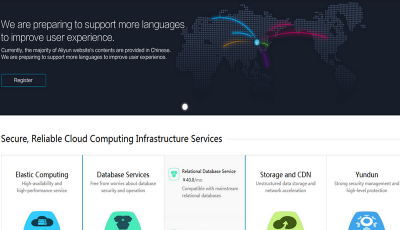Alibaba Group Holding Ltd Introduces Artificial Intelligence To Its Cloud Business
Alibaba’s cloud computing business is hoping to attract enterprise customers with a new artificial intelligence service designed for data mining and analysis.
The new system, named DT PAI, will study large volumes of data to create forecasts on industry trends, the company said today. The service can be operated by linking standardized modules and setting the targeted parameters prior to application.
Xiao Wei, DT PAI product manager, said the Aliyun will roll out a free public test of the concerned service for an exclusive bunch of early users in the coming weeks.
DT PAI will feature engineering functions, large-scale machine learning and deep learning.
Although Alibaba is not especially well known for its artificial intelligence, or even cloud computing, output, the e-commerce giant has been expanding its technology offering in recent times. The company had stated that Alibaba’s Open Data Processing Service (ODPS) has the capacity to manage 100PB of data.
In July, the company announced a further $1bn push into cloud computing, as it plans to take on the competition and expand into worldwide markets.
In the event, other matters in China yesterday rather overshadowed the announcement, but news of DT PAI as what’s being pitched as “China’s first AI platform” is another sign of how determined Alibaba is to try to counter Amazon on both the e-commerce and cloud platform fronts. The company now has seven data centers in total, serving Aliyun’s 1.8 million customers. In its otherwise lackluster second-quarter earnings report, Alibaba said that quarterly revenue from its cloud computing and Internet infrastructure business jumped over 106 percent year-over-year to $78 million. For example, shoppers would be able to take a photo of a product and be redirected automatically to the product listing on Alibaba’s e-commerce platforms.
“In the past, the field of artificial intelligence was only open to a very small number of qualified developers and required the use of specialized tools”, Wei said in a statement. “Such an approach was prone to error and redundancy”, he added.










